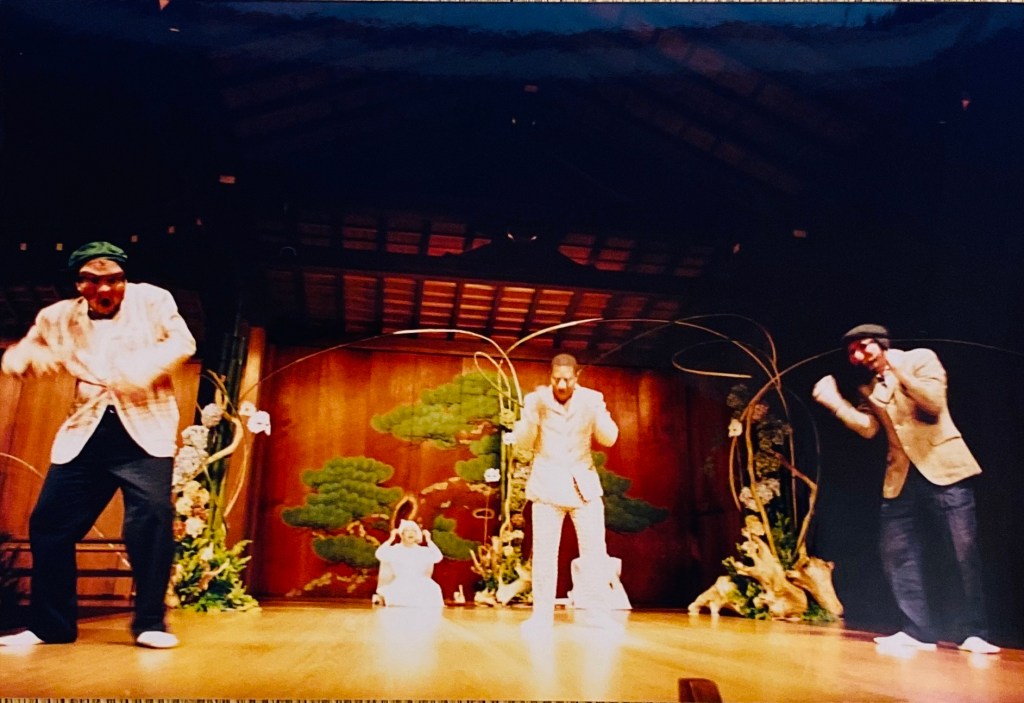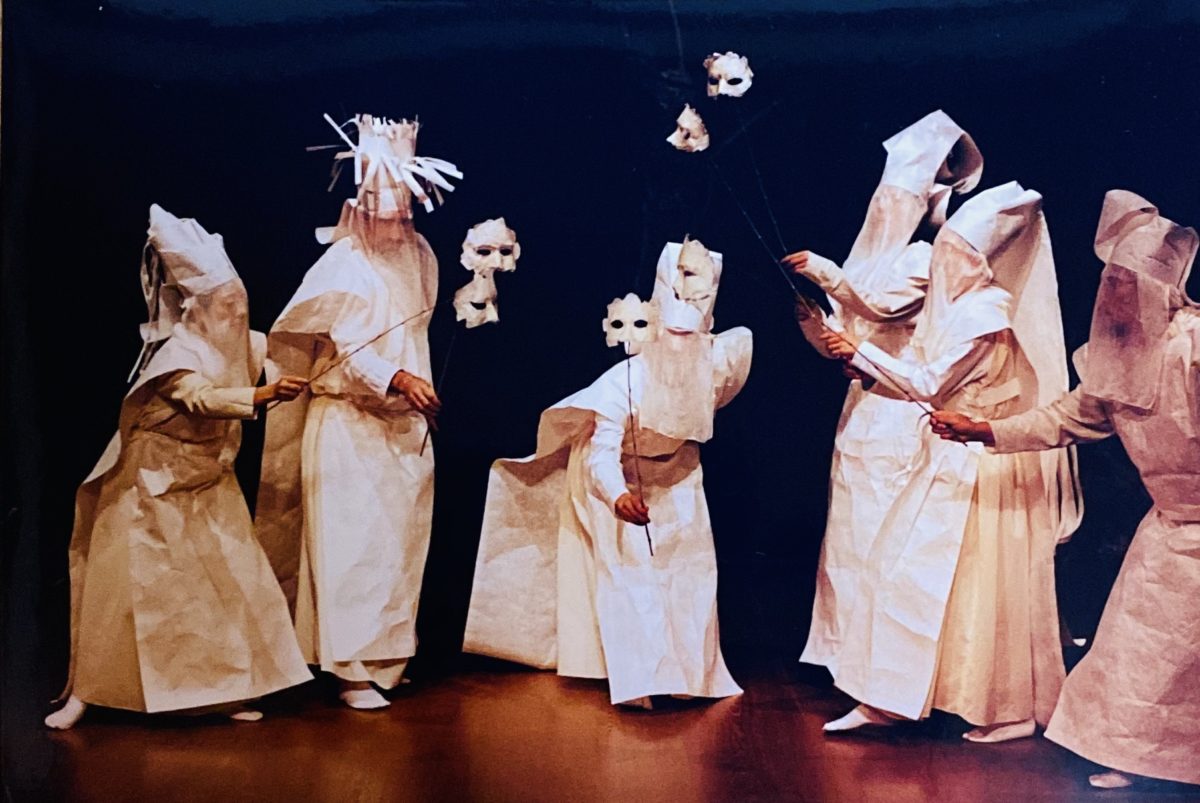

Everyman (in Japanese, MinNa) is an allegorical morality play written by anonymous writer of the 10th Century.
I read it when I was an international student at University of Victoria, Canada, in 1986, and very much impressed.
At that time, I had no idea whatsoever that I was to be a theatre director. But in 2002, after I made myself in that occupation, I had a chance to put a show in a young and small theatre company. I chose this one without hesitation.
One of the significant points of this production was that we put it on a traditional Noh Theatre stage. It was so so so difficult to get permission from the Noh Family. It was such a new thing that a modern western-style theatre would use traditional Japanese theatre stage. We knew nobody, we were unknown by anybody.
Another significant point of the show was that the cast was mixed with varied nationalities. English, Cameroonian, Singaporean, and Japanese. I think ours was one of the earliest experiment to put a theatre piece in multi-lingual and multi-national.

The Gods are gathering to discuss how to deal with people who do not show any respect to them.
The masks are hung from bamboo rods, the face-cover, head-piece, and the white costumes are made of Japanese Washi paper.

Gods decided to eliminate people. A god summons Everyman (MinNa) and tell him that Death would fetch him today.
The masks are hung on decorated tree in Traditional Noh Style. Those decoration trees are designed by KoEn Yokoi.

Everyman, so astonished, tries to find co-traveller to Hell. All his Friends (Tomo), his kinsmen (Shinrui Enja)rejected him, even though they said “I’ll do anything for you.”
These modern clothes are normal clothes.

Disappointed by human beings, MinNa now tries to persuade Money (YutakaSa), but in vain.
The gorgeous blue dress and head-set are made of Japanese Washi paper.

But there come Knowledge (Chishiki) and Good Deed (Yoi Okonai), and tell MinNa that if he should prepare with the robe of sorrow, Five Great Senses will be with him.

But then, great companions come to him. And they all start to go down to Hell, playing music and singing together.



Among them are
Common Sense (Shiryo Funbetsu),
Energy (Chikara),
Beauty (Utsukushi),
and other good simbols
join him to the road to Hell.

At last, he came to the gate of Hell.
The elements are astonished and cannot go further. They have lost their power.

But Good Deeds (Yoikoto) says she will be with him whatever happens and wherever he goes. Then Death descends and brings them away to the world of death.
How do you like it?
I love my directing. (If not, who would?)
And, as I put the memories together after 18yearts from the production, I am proud of myself. The idea, the setting, the translation, and the new challenges. I thank the actors, though some of them I have lost my track, those talented and challenging, and exciting people!











